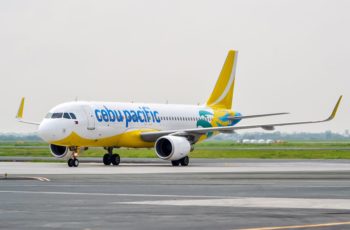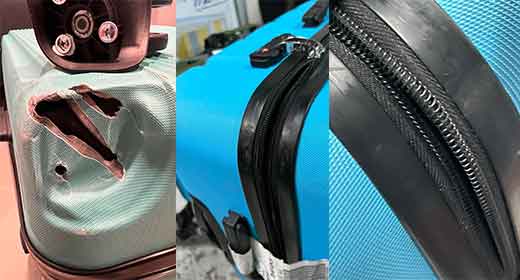Emirates Airlines says it has been confiscating up to 18 scooter boards every day from departing passengers attempting to travel with said items.
A number of airlines have banned motorized devices over concerns about their lithium batteries. The batteries tend to spark if brought into contact with other metal objects.
As many foreigners from the United Arab Emirates are getting ready to go home with presents, Etihad and flydubai urge passengers not to bring the devices to the airport.
Emirates has already confiscated up to 18 devices on their busy days, although the numbers have decreased.
Flydubai also confirmed that scooter boards are no longer allowed onboard, either hand luggage or check-in bags.
However, passengers said they are unaware of the ban and wrote about it on social media.
On October, malls were asked to ban the scooter boards after receiving complaints from shoppers and traders. At least 15,000 were seized in the United Kingdom last week following safety concerns.
Some scooters had a faulty cut-off mechanism in the charger, which meant the devices continue to charge until they overheat and catch fire.
Meanwhile WPTV NewsChannel 5 Mother Pamela Levine says her 11-year old daughter, Sophie, just missed getting injured by her hoverboard Saturday night. “She felt it get hot, she jumped off, and it was in flames,” she says.
Pamela quickly put water on the flames, and says the fire was out before firefighters arrived.
Watch below Video credit to WPTV News | West Palm Beach Florida
In the reports from Mashable below are the airlines Regulations if you want to bring such toys
Currently, these are the regulations in place for hoverboards at different airlines:
- United: Allowed in checked luggage, but battery must be removed and taken as carry-on
- Delta: Not allowed in checked or carry-on luggage
- American: Allowed as carry-on only
- Southwest: Allowed in checked luggage if battery is under 160 Watt-hours
- JetBlue: Not allowed in checked or carry-on luggage
- Virgin America: Not allowed in checked luggage
- Alaska: Not allowed in checked or carry-on luggage.
- Frontier: Not allowed in checked or carry-on luggage.
As of February this year, there were 151 recorded air and airport incidents “involving batteries carried as cargo or baggage” since March 1991, according to the Federal Aviation Administration. Several of those incidents involved a fire caused by a battery in passenger luggage.
In the FAQ section of the Swagway website it states outright that the hoverboard is not allowed on flights as a carry-on: “Passengers are prohibited from carrying on lithium batteries containing more than 2 grams of lithium content and lithium ion batteries containing more than 25 grams of equivalent content. The Swagway contains 43 grams.”
Most hoverboards contain 36 volt 4.4AH lithium ion batteries, with 158.4Wh.
Current FAA guidelines state that in a carry-on, “Passengers may carry all consumer-sized lithium ion batteries (up to 100 watt hours per battery). Passengers can also bring two larger lithium ion batteries (100-160 watt hours per battery) in their carry-on.”
The same batteries allowed in carry-on luggage are allowed in checked, except for “spare (uninstalled) lithium metal and lithium-ion batteries,” which are completely banned. “The batteries must be protected from damage and short circuit or installed in a device. Battery-powered devices — particularly those with moving parts or those that could heat up — must be protected from accidental activation.”
In October, the FedAviation Administration banned e-cigarettes in checked baggage. And in July, Boeing warned airlines against flying bulk shipments of lithium-ion batteries.






